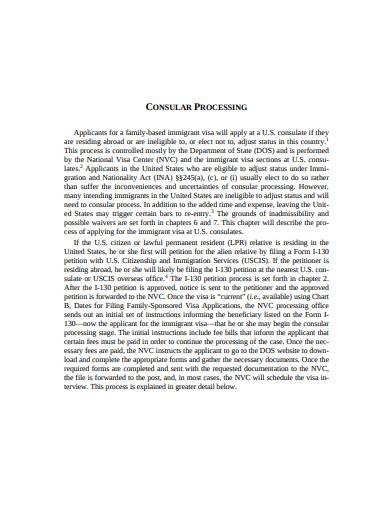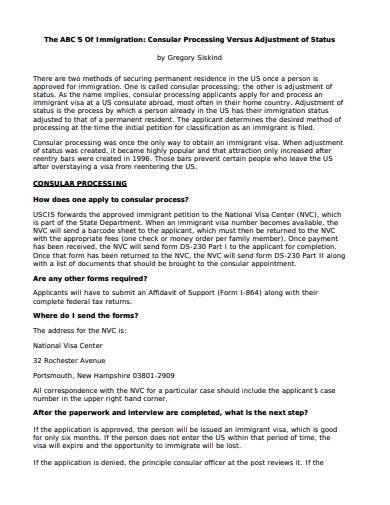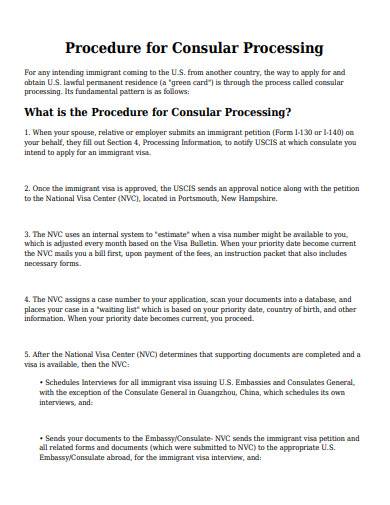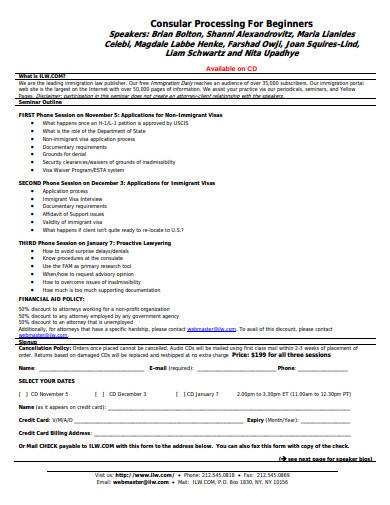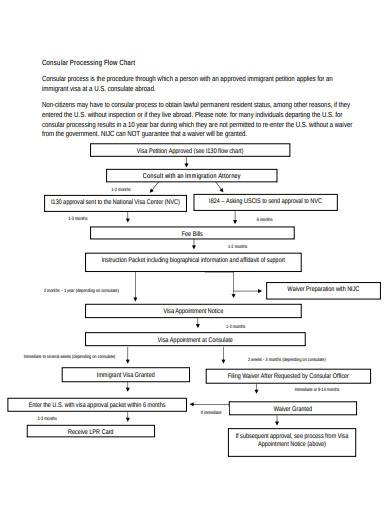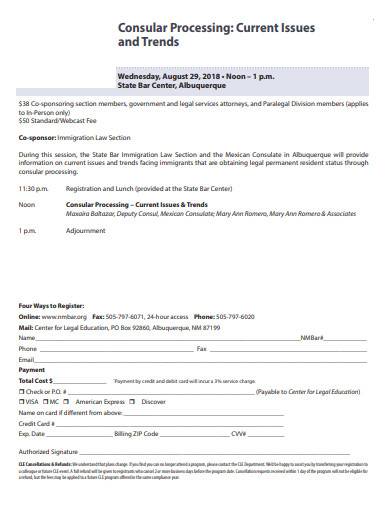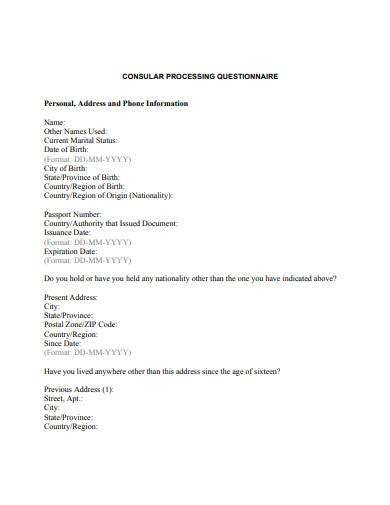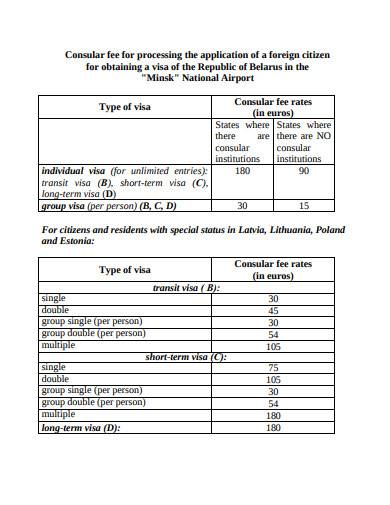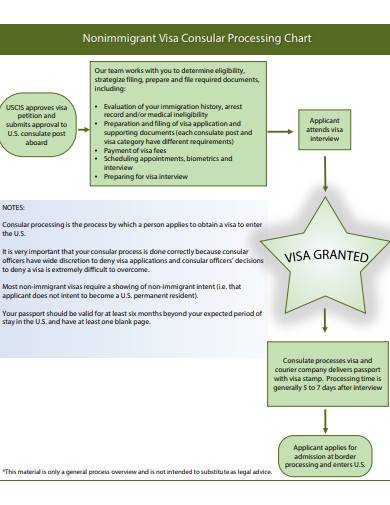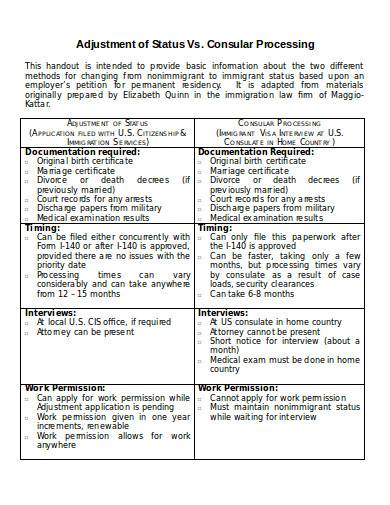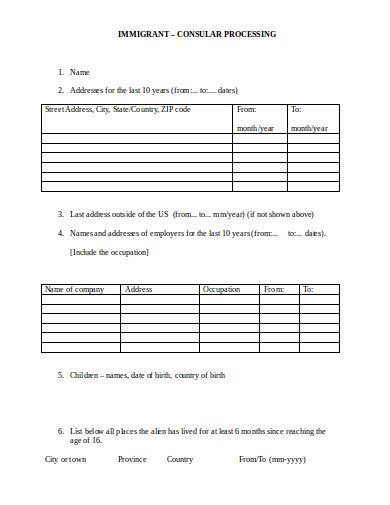An article from WorldAtlas stated that the United States of America is the third most visited country in the world, with approximately 80 million visitors in 2018. Why, who wouldn’t want to see the Statue of Liberty and walk the streets of the Big Apple? It may not have topped the list of the most visited countries, but for a lot of people, the United States of America is the place to be. The “American Dream” is what they call it, and to make this American Dream come true, getting a green card is a top priority. One of the two ways of getting a green card is through consular processing. Learn more about it as you read this article.
What Is Consular Processing?
Also known as a Permanent Resident Card, a green card is the most coveted thing that non-American citizens want to ultimately live their American Dream. It serves as evidence that an immigrant has been granted the privilege to live in the United States permanently. Most immigrants apply for a green card while they’re living in the United States. But did you know that you can still apply for a green card if you live outside the United States? It’s possible through consular processing. As the name implies, consular processing enables immigrants to apply for an immigrant visa or green card through a U.S. Consulate or a U.S. Embassy in one’s home country outside the United States. Now, you can start working on your American Dream even before you step foot on the Land of the Free.
Consular Processing vs. Adjustment of Status: Which Is Better?
There are two ways of acquiring a green card or Permanent Residence Card. One is through consular processing, and the other way is through Adjustment of Status. Both consular processing and Adjustment of Status follow the same procedure, but which is actually better? Let’s find out.
Adjustment of Status
- It is the preferred method of applying for a green card for immigrants already living in the United States.
- Applicants must maintain a valid immigrant status in the United States, such as an H-1B work visa or an F-1 student visa.
- The USCIS or the U.S. Citizenship and Immigration Services handles the application for citizenship. This agency is under the U.S. Department of Homeland Security.
- Processing time is typically around 10 to 18 months, which is different from a consular processing timeline.
- The application process is completed in the United States, allowing the applicant to be with their family members in the U.S. or even work while waiting for their green card.
- Must advance parole documents before departing the U.S.
- The total fees for an adult applicant would be around $1,760.
- The USCIS may issue a denial notice for discretionary reasons.
Consular Processing
- As mentioned, consular processing allows immigrants to apply for a green card while living outside the United States.
- Unlike the Adjustment of Status, the U.S. Department of State handles applications for citizenship.
- Consular processing time is typically around 5 to 12 months, which is way shorter than Adjustment of Status.
- The applicant may be separated from their U.S. family members while waiting for the approval of their application and their green card.
- A visit to the U.S. will be difficult, and your application for a non-immigrant visa will be subjected to scrutiny. Applying for green card signals the U.S. government that you have intentions of living in the U.S. permanently in the future, and this may cause a visitor visa application to be denied.
- The total consular processing fees for an adult applicant would be around $1,200. That’s $500+ less than going for Adjustment of Status.
- It has a lower risk of refusal because consular officers cannot refuse to issue a visa for immigrants based on discretion.
Based on the information provided above, which green card application process do you find better? However, not everyone has a choice when it comes to deciding the application process to follow. So even if you have decided which is better between the two, you’re still not entitled to choose which process to follow.
10+ Consular Processing Samples
1. Consular Processing Sample
2. Consular Processing Adjustment of Status Template
3. Procedure for Consular Processing Sample
4. Consular Processing for Beginners Template
5. Consular Processing Flow Chart Sample
6. Basic Consular Processing Template
7. Consular Processing Questionnaire Sample
8. Consular Fee for Processing Template
9. Non-Immigrant Visa Consular Processing Chart Sample
10. Consular Processing in DOC
11. Immigrant Consular Processing in DOC
How to Apply for Green Card Through Consular Processing
1. Establish Green Card Eligibility
You’ll be eligible for a green card if a U.S. citizen or a green card holder files for a Petition for Alien Relative, also known as Form I-130, on behalf of the beneficiary. This form helps establish a relationship that makes the beneficiary eligible for a green card.
2. Wait for the Petition’s Approval
The U.S. Citizenship and Immigration Services (USCIS) will decide for the petition, and the agency will send the decision to the petitioner. If approved, the decision will be forwarded to the Department of State’s National Visa Center (NVC) and will remain there until an immigrant visa becomes available. If denied, the petitioner will receive a notice with the reasons why the petition was denied.
3. Get a Visa Number
NVC will notify both the petitioner and beneficiary if an immigrant visa is available. They are also responsible for collecting visa application fees and supporting documents.
4. Apply for an Immigrant Visa
After the beneficiary receives the submission for immigrant visa application notice, he or she must submit the immigrant visa processing fees, the visa application, and supporting documentation to the NVC.
5. Show up on Appointment for Consular Processing
You’ll be invited for a consular processing interview in the consular office. Make sure to attend the appointment and answer the consular processing interview questions accordingly, because this is one of the basis in deciding whether or not you are eligible for an immigrant visa.
Only a small number of immigrants are given the freedom to choose between consular processing and Adjustment of Status. This is just a small sacrifice for the sake of your American Dream. Your patience and hard work will surely pay off once you get hold of your green card.
Related Posts
Weekly Schedule Samples & Templates
Contractual Agreement Samples & Templates
FREE 9+ Amazing Sample Church Bulletin Templates in PSD | PDF
Sample Business Card Templates
Sample Cashier Job Descriptions
Questionnaire Samples
FREE 10+ Sample HR Resource Templates in PDF
FREE 10+ HR Consulting Business Plan Samples in MS Word | Google Docs | Pages | PDF
FREE 49+ Sample Job Descriptions in PDF | MS Word
FREE 16+ Nonprofit Budget Samples in PDF | MS Word | Excel | Google Docs | Google Sheets | Numbers | Pages
FREE 13+ Academic Calendar Templates in Google Docs | MS Word | Pages | PDF
FREE 10+ How to Create an Executive Summary Samples in Google Docs | MS Word | Pages | PDF
FREE 23+ Sample Event Calendar Templates in PDF | MS Word | Google Docs | Apple Pages
Company Profile Samples
FREE 10+ Leadership Report Samples [ Development, Training, Camp ]

